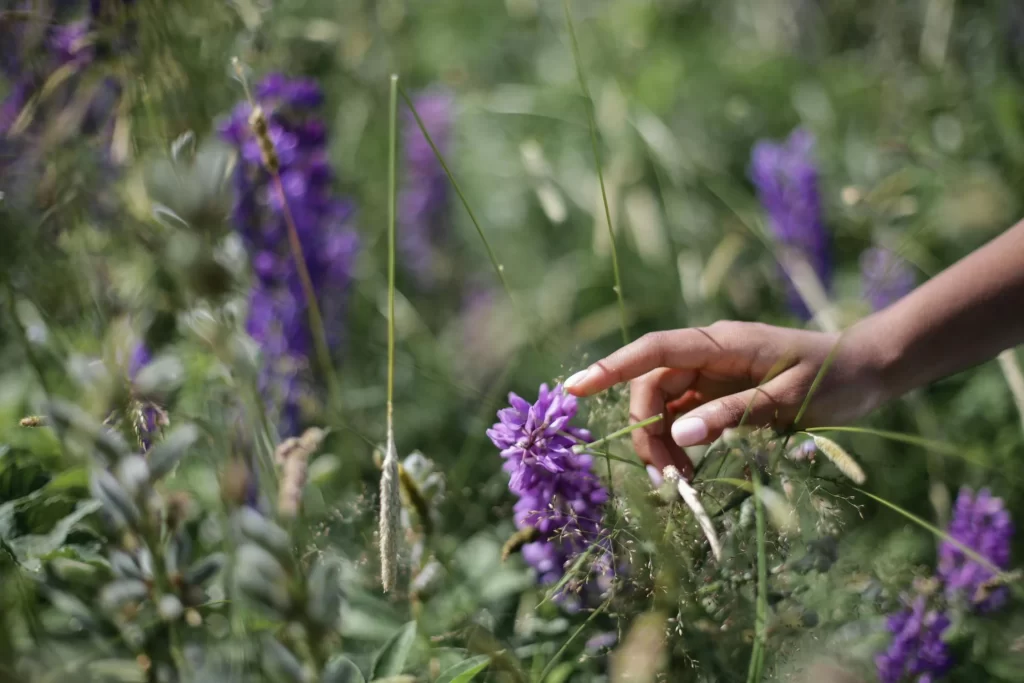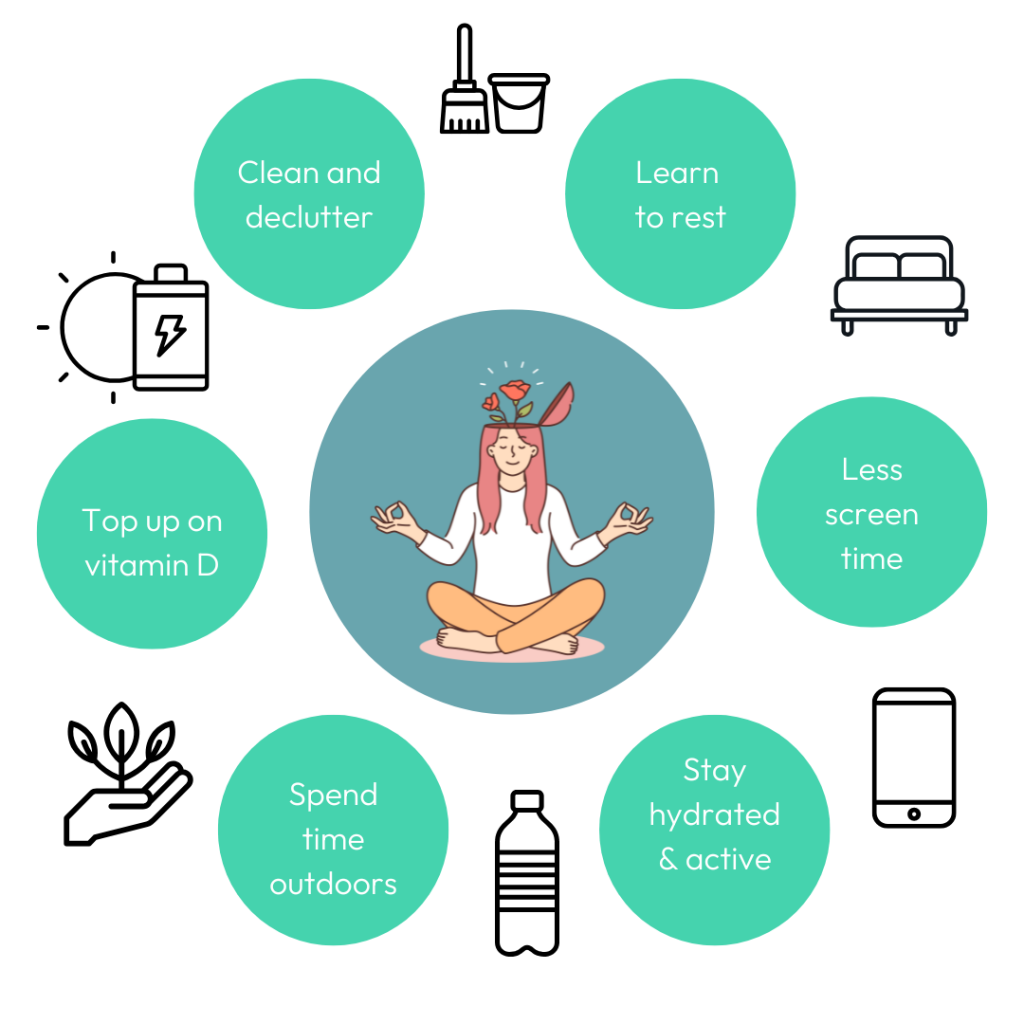Today officially marks the first day of spring. For many, this is the time for spring cleaning our homes, gardens and wardrobes. But what about our mental health? In this blog, we look at the different ways we can lift our mood and positively influence our mental wellbeing this season.

It’s important to look after our mental health all year round, but with the arrival of spring we’re exploring how we can use our environment to help boost our mental health and wellbeing.
During the spring the days get longer, the temperature is milder, flowers bud and bloom and wildlife emerges. The transition to spring can feel like a breath of fresh air and with all this change happening around us, what better time to make some changes to positively influence our mental health.

If you’re looking to boost your mental wellbeing this spring, take advantage of the blossoming season with these small steps
Clean and declutter
While many of us may think of cleaning as a chore, tidying up our physical space can have a meaningful impact on our mental health. Studies have shown that a clean and organised space can reduce stress levels, promote feelings of calmness, and improve our overall mood.
Learn to rest
Rest keeps our physical and mental health in balance. When we’re resting, we’re giving our bodies and minds the opportunity to repair and recharge, reduce stress and most importantly, support our emotional health.
Less screen time
Technology is a part of many of our lives – whether it’s for work, education or staying connected with family and friends. Whilst it has many positives, excessive screen time can have negative effects on our mental health. By reducing your screen time, you could be improving sleep quality, reducing stress levels, increasing productivity and creativity, and overall promoting better health.
Stay hydrated and active
Just like our plants need watering, we need to stay hydrated too. There are many benefits of drinking water such as improved digestion, healthy organ function, brain boost, reduced fatigue and more. Being active can improve your health in many ways, especially your mental health.
Physical activity and exercise cause your brain to release ‘feel good’ chemicals like dopamine and serotonin that help improve your overall mood.
Spend time outdoors
Studies have shown that being outdoors can have relaxing effects on our minds. Allowing our eyes to see green and blue, colours abundant in nature, can provide a whole host of benefits to your mental health and allows our minds and bodies to relax in a natural setting. Read about the benefits of birdwatching on the Canopi blog.
Top up on vitamin D
After a long and dark winter, spring is finally here, and the sunshine is on its way! It is important to top up on some natural vitamin D to give your mental health a boost. Exposure to sunlight is also thought to increase the brain’s release of a hormone called serotonin. Exposure to early morning sunshine can help to re-establish a natural circadian rhythm helping us sleep, reduce stress and regulate our appetite.

So, as we move from winter to spring… enjoy the warmer weather, embrace the spring cleaning and most importantly, take the time to prioritise your mental and physical health.
Taking action to improve your mental wellbeing is the first step towards lighter days ahead.
Not sure how to take the next step? Worried or Overwhelmed? Canopi can help. We are a free and confidential mental health support service for social care and NHS staff in Wales, you can refer yourself through our online form if you’re looking for support.
Resources
Mind: How nature benefits mental health
VeryWellMind: Cleanliness and mental health – what’s the connection?
Visit Wales: Ideas to get active in springtime
Headspace: Spring clean your mind
Read more
- Canopi blog: Stop, look and listen: how birdwatching helps my mental health
- Canopi blog: How art and photography helped me on the road to recovery
- Canopi blog: Five ways to support your mental health and wellbeing through a healthy diet
- Canopi blog: Reading as therapy
See our list of recommended wellbeing resources.

